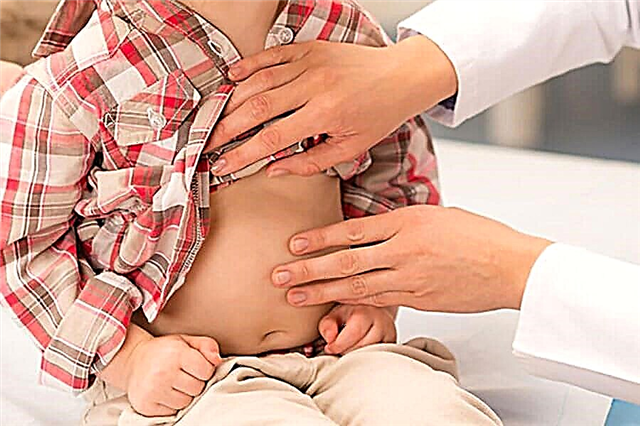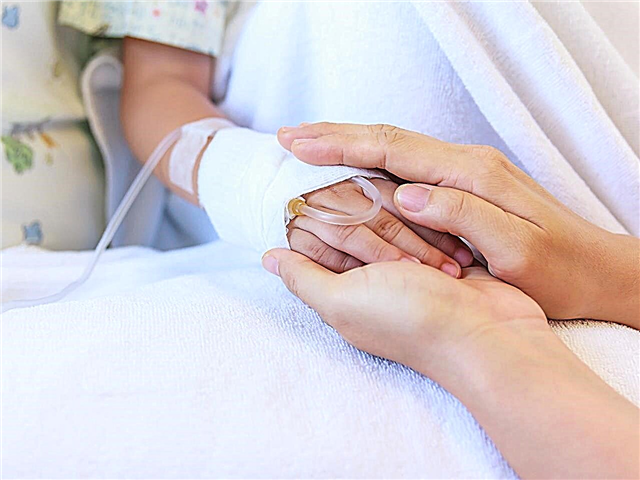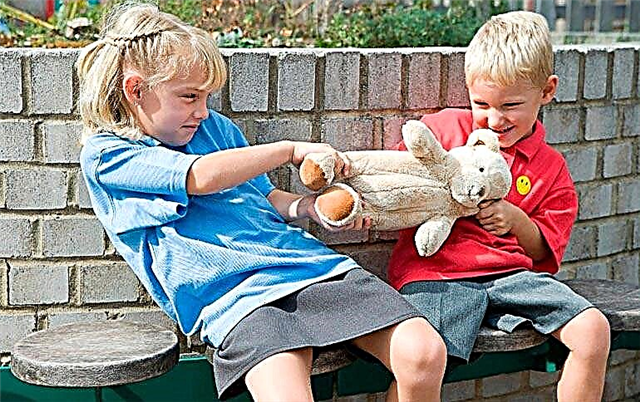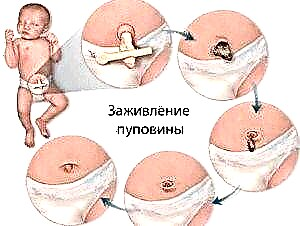When a baby starts to get sick, it always causes great anxiety in his family. Food poisoning is especially confusing when the child vomits, diarrhea and abdominal pains. The task is greatly simplified if the baby is able to speak and is able to explain what he ate or drank, while with the little one everything is much more complicated.

Nausea
What is vomiting
Vomiting is a reflex contraction of the muscles of the gastrointestinal tract, which occurs to empty the stomach and esophagus. A reflex spasm in a child can be for several reasons:
- poisoning;
- dizziness;
- binge eating;
- disturbances in the work of the stomach;
- infection;
- excitement (stress).
In infants in the first months of life, vomiting can occur after each feeding, this phenomenon is called "regurgitation". This process is normal from the point of view of physiology. It should be completed by 6-8 months of the child's life. By this moment, the formation of the sphincter of the stomach ends, which later on retains food with high quality, not allowing it into the esophagus.
Why does the baby vomit
Infant regurgitation is associated with the fact that when a baby suckles, he fills his stomach with milk, not knowing the measure, that is, to the top. With milk, the baby almost always swallows air, which, after eating, tends upward - into the esophagus, because air is lighter than milk. He, bursting out, pushes out the milk portion.
Babies under 8 months of age have sphincters that have not yet formed. The stomach is unable to hold food during belching. That is why it is recommended to keep babies "soldier" after each feeding. In this position, it is easier for the air to get out without pushing out the food blocking the way.
The baby can spit up, and when he pushes hard to empty the intestines or when the abdomen is bloated. If this happens in the first 40 minutes after eating, and the general condition of the child is not disturbed, there is no cause for concern. The baby can spit up three times in a row when the air comes out in portions.
Possible causes of vomiting in children under one year old
If the child has vomited, but it does not look like regurgitation, or the age of physiological regurgitation has already passed, it is worth thinking about the reasons. Children aged 9 months to 2 years are at risk for rotavirus. It is possible to become infected with it even at an older age, but most often children of this particular age range get sick for the first time.
Rotavirus symptoms are:
- vomiting against the background of a general undisturbed state;
- after a while, the temperature rises, the value of which can reach 39-40˚С;
- diarrhea begins.
Attention! Primary infection with rotavirus is always severe, accompanied by high fever, and stool does not recover for a long time. After fighting the pathogen, the body develops immunity, but it is short-lived. But the second and subsequent infections are much easier than the first.
Children who eat canned puree can become infected with botulism. Honey is also dangerous for children under one year old, because it almost always contains spores of bacteria that cause children's botulism. The disease can manifest itself 3 and even 15 days after the spores enter the esophagus. This disease is extremely dangerous because the lack of timely medical care will inevitably lead to death.
Poor quality food is the reason for the food dispatch, as a result of which vomiting in the child opens. In infants, this situation can happen if the mother expresses milk and stores it at room temperature. Bottle-fed babies get food poisoning when a large portion of formula is prepared at night to avoid getting up to make a fresh formula. In an hour and a half in such a bottle, the reproduction of pathogenic bacteria is already actively beginning.
Prevention of food poisoning is simple hygiene rules and food standards. Children should be taught to wash their hands before eating from a very young age. By example, the best way to learn. At the same time, you need to learn yourself and teach children to do this correctly - the soap should contact the skin of the hands for about 1 minute in order to destroy all dangerous pathogens.

Hand washing
On a note. Impatient little ones can be taught to wash their hands with soap and water, singing a short, light song, during which their palms will diligently soap each other.
At what time of day does it often vomit babies
If an intestinal infection has occurred, the first symptoms will appear in the morning. This is why vomiting in the morning is a sign that most likely yesterday's homemade food was stale.
Rotavirus infection also does not manifest itself at the time of infection. The causative agent takes time to spoil the well-being of a person. Therefore, vomiting in the morning, especially before the first meal, is one of the first conditions under which rotavirus should be suspected.
What to look for
Children of different age groups have their own characteristics related to lifestyle, abilities and gastronomic preferences. Therefore, it is worth paying special attention to some factors.
The onset of an attack of nausea
When the first signs of deterioration appeared immediately after a meal, the child vomited, the first thing to do is to analyze:
- food quality;
- the circumstances under which the food was consumed;
- the child's attitude to the proposed dish (sometimes outwardly unattractive food can cause disgust, and, as a result, vomiting).

Refusal to eat
The nature of vomiting
A single, non-recurring more than two to three times in a short period of time, nausea is not a reason for active action. Most often, this situation can occur if the food eaten turned out to be too heavy for the stomach. This is especially true for fatty foods.
Mothers often note vomiting in infants as a "fountain", considering it a terrible symptom of dysfunction of the digestive system. In fact, the speed with which the milk drunk by the baby spills out depends only on the strength of the contraction of the muscles of the esophagus provoked the reflex.
State of vomit
Paying attention to vomit, it is often possible to draw correct conclusions about the causes of digestive disorders. For example, large food fragments may indicate that the preschooler was in a hurry, chewed poorly, and swallowed hastily. It is difficult for a child's stomach to digest large chunks, which often causes vomiting.
If the vomit smells sour, this indicates that the stomach was trying to digest food, but did not cope with the task. This is usually the case with single, spontaneous attacks. If the digestive function is impaired, the vomit will smell like rot, which indicates a long stay of food in the stomach, which he did not try to digest.
Important! Fecal odor indicates either serious pathologies of the duodenum, or the presence of a fistula between the stomach and intestines.
The presence of accompanying symptoms
When the baby burps, what to do:
- To find out if there is pain in the abdomen - gently and gently palpate the abdominal cavity for the baby, ask the older child about the presence of pain.
- Pay attention to stools - diarrhea is an indicator of a disorder of the entire gastrointestinal tract.
- Measure body temperature - its rise will be a signal of an infectious infection.

Palpation of the abdominal cavity
With food poisoning, the body temperature remains normal or increases slightly due to the muscle activity of the digestive organs. As a rule, in this case, vomiting stops immediately after the stomach completely gets rid of the contents.
Another important symptom that precedes vomiting is persistent coughing. Vomiting is not only a reflex gastric emptying, but also an effective way to clear the airways. If frequent bouts of coughing last a long time and result in vomiting, you should seek medical attention to diagnose whooping cough.
Analysis of the previous 2 days
In order to determine the cause of the vomiting as soon as possible, you should analyze everything that happened to the baby in the last 48 hours. This is important because food poisoning may not appear immediately, but only after 2 days.
Poorly selected breakfast foods can also cause nausea. For example, fresh raspberries or strong tea very often, interacting with aggressive gastric juice, provoke nausea and subsequent reflex esophageal spasms.
Attention! Active children, unable to calmly spend half an hour after eating, often feel nauseous. If a healthy child vomits after eating quality food, the answer may lie in his behavior. It is better to learn to postpone outdoor games for an hour after a hearty meal in order to allow the stomach to process the food received.
First aid for babies
In the case when the baby is not three years old, the first thing to do if the child vomits is to call an ambulance. Until medical assistance arrives, you can provide first aid:
- put the baby in the first year of life so that at the next attack he does not choke with vomit, depending on age - turn on his side or sit down;
- timely replenish the water-salt balance, often soldering, but in small portions;
- if the body temperature exceeds 38˚C, antipyretic drugs are used in the form of rectal suppositories, which, bypassing the esophagus and stomach, will immediately begin to be absorbed in the intestines.
Attention! The most important thing to do when a child vomits is to drink often, but fractionally. Loss of only 10% moisture by the body can lead to death.
When to call an ambulance
In addition to children under 3 years of age, indications for seeking medical help are:
- no improvement in the condition on the 2nd day;
- temperature rise;
- manifestation of signs of poisoning in other family members.
If, in addition to the baby, one of the parents or others living with a sick child in the same area began to vomit, it is imperative to contact a medical institution to record a case of mass poisoning. It is good if it is possible to find out after which particular product it became bad - the doctor is obliged to draw up a document to the sanitary-epidemiological service to check outlets and catering.
Cases when it is impossible to wait for the second day to analyze the condition, but urgently needs to call an ambulance, include:
- the inability to drink (the child refuses, starting a tantrum, or everything drunk immediately returns with vomiting);
- 48 hours before the onset of signs of poisoning, mushrooms or canned food were present in the food;
- a rash appeared;
- muscle weakness is observed;
- there is a noticeable problem with swallowing;
- any, even a small amount of blood is found in vomit or feces;
- yellowness appears;
- if a child who can speak reports a visual impairment;
- if the speech of a kid who knows how to speak is confused, the language is "braided".
Important! The listed symptoms are indications for an immediate appeal to a medical institution, as they are signs of a deadly disease, which can be saved from in a short time by introducing serum into the blood.
Also, the patient may soon disrupt the work of the respiratory muscles, in this case the doctor will save the child by connecting it to a ventilator.
Signs of dehydration
If the child is snatched up drunk, the main thing that needs to be done is to get to a medical facility as soon as possible, where doctors will fill the water deficit with the help of droppers. For an infant weighing up to 8 kg, moisture loss of only 300 ml can be fatal. Avoiding dehydration is a top priority for adults.

A child under a dropper
Symptoms of dehydration
In situations where a child vomits repeatedly, watch for the following symptoms of dehydration:
- the baby is crying, but for some reason there are no tears;
- a dry diaper for more than 5 hours in a row, and for older children - a dark color of urine and its meager amount;
- pallor of the skin;
- dry tongue.
Lack of moisture is also dangerous because the toxins formed in the body begin to accumulate in the kidneys. If there is not enough moisture in the organs and tissues, the kidney or liver can be completely destroyed. Children's organs are vulnerable, the protection system is imperfect. Therefore, it is extremely important to help rid the body of poisons by flushing them out in urine.
Sometimes very simple rules of behavior are much more important than potent drugs, because they can save the life of the baby and prevent serious complications. Handwashing, a working refrigerator and high-quality heat treatment of raw foods are good habits and a guarantee of healthy digestion for the whole family.



